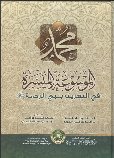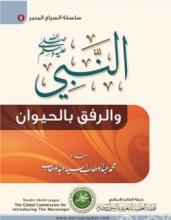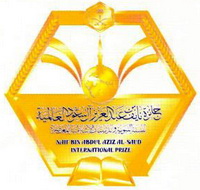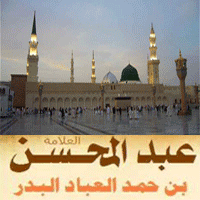The Impact
By Imam Zaid Shakir
Some Ethical Sayings of the Prophet[13]
The following is a collection of some of the ethical sayings of the Prophet, peace and blessings of God upon him. They are selected from the work of the great master of prophetic tradition, Ibn Abi ad-Dunya. He mentions these sayings in his book, Makarim al-Akhlaq (Noble Character Traits).[14] They are related without comment to encourage personal reflection on their deeper significance for our current condition.
When Allah will resurrect the first and the last on the day of resurrection, our Messenger (peace be upon him) will be the leader of the children of Adam, carrying the banner of praise. On that day the Prophets and the Messengers will be beneath his banner. The Messenger (peace be upon him) said:
By: Amena Jacobs
A very special month is coming up for Muslims around the world. Very soon the month of Ramadan will be upon us. I know some of you are thinking what is Ramadan? I've heard of it before but don't quite know what it means. Ramadan is the 9th lunar month of the Islamic Calendar. However that is not all it is, it is also a very special month because we fast the entire month from sunrise to sunset. So, keep reading as I'm going to explain Ramadan and its significance, history and our manner of fasting.
Contrary to what some may believe, the Prophet Muhammad (peace be upon him) was a man who would occasionally joke with this companions. This, in itself, should come as no surprise if we were reflect on the fact that humour has the capacity warm people’s hearts and lift their spirits, it is most befitting that that a sense of humour be one of the characteristics possessed by the Prophet Muhammad (peace be upon him) along with the other characteristic required by the crucial role of Prophet.
Even as boy, Muhammad (peace be upon him) was concerned about his fellow men. One day a trader from Yemen had his goods stolen by a group of wicked Makkans. The trader called out for help, but no one came forth. So the trader wrote a poem that made fun of the Makkans' bad behaviour, and recited it out loud in public for all to hear. When Zubayr, one of Muhammad's (peace be upon him) uncles, heard this poem, he felt ashamed.
The Prophet (peace be upon him) revealed that only Allah can know the unseen
He was very kind and understanding with little children in an age when people thought the whip was the best way to bring them up. He used to joke with them, put the little ones on his knee and kiss them. He loves his two grandsons, Hassan and Husayn, with deep paternal devotion. When they were very young, they used to climb over his back while he was praying, and he would either carry them and continue to pray or put them down gently and continue his prayers.
The Prophets and Messengers
(peace be upon them) which were sent to mankind, regardless of the diversity of their respective periods and geographical locations, all called towards the same general principles and the same basic mission:
“For We assuredly sent amongst every People a messenger, (with the command), "Serve Allah, and eschew Evil": of the People were some whom Allah guided, and some on whom error became inevitably (established). So travel through the earth, and see what was the end of those who denied (the Truth).” [16: 36]
After the initial Muslim victories that liberated people from the tyranny of tribal warlords and the oppression of Roman and Persian occupation, Islam rapidly spread eastward to China, westward to Spain and deep into Africa. This phenomenon was not due to further military conquest, but to the exemplary personalities of energetic Muslims who traveled to their lands as tradesmen, workers and educators. In those early centuries of Islam, the Prophet's Sunnah was the unmistakable model of conduct which formed a Muslim's character.
Allah stated in the Qur'an that to worship Him is the purpose of human existence[1] and He stated that He gave man life on earth in order to test him as to who is best in deeds,[2] meaning the deeds one does while intending worship of Him. For any deed that is done or avoided while seeking the acceptance of Allah automatically becomes an act of worship. However, the Prophet affirmed that Allah does not benefit from the worship of His creations, nor does their refusal harm Him in the least.






.jpg)

